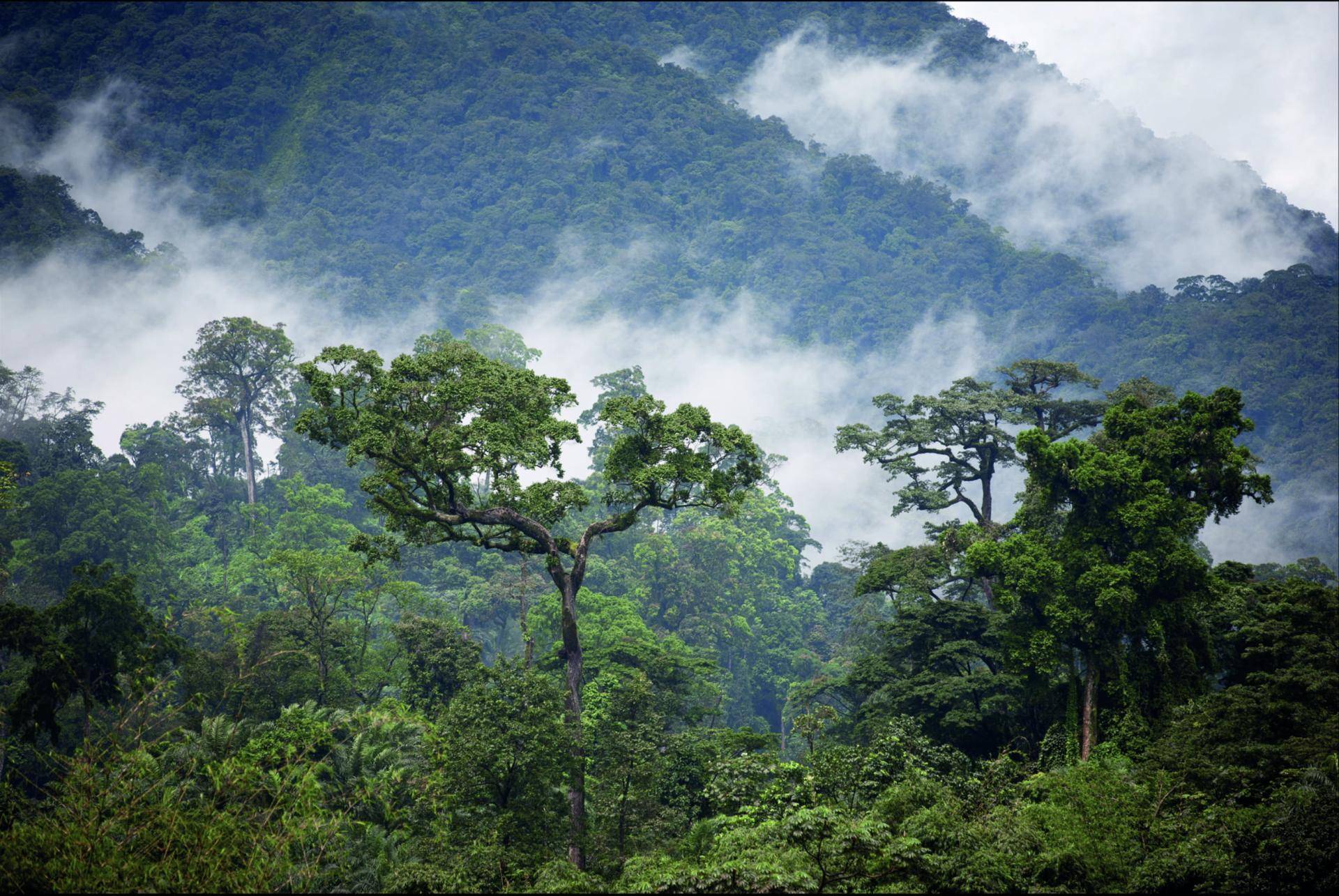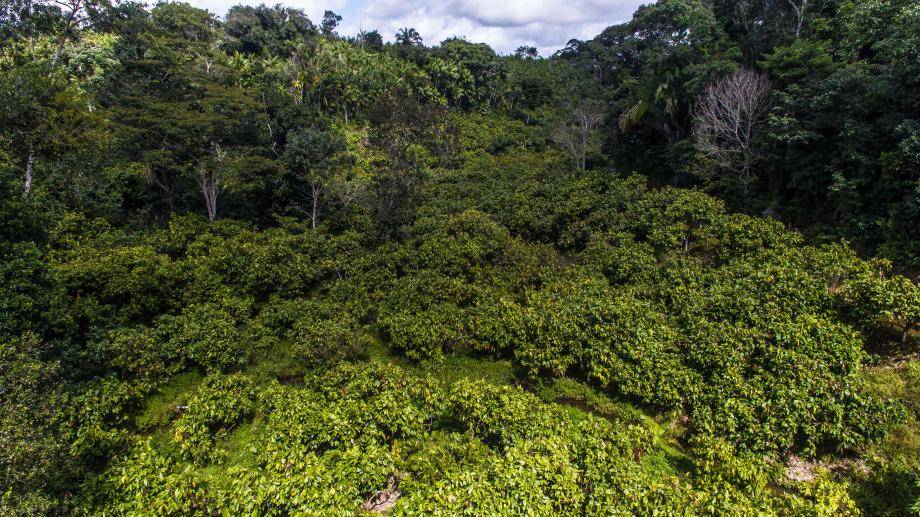Barry Callebaut continues to lead in corporate action and transparency on deforestation and climate change

Barry Callebaut continues to lead in corporate action and transparency on deforestation and climate change

Barry Callebaut has been recognized for leadership in corporate transparency and performance on forests by the global environmental non-profit organization, CDP, securing for the second time a place on its annual ‘A List’. Based on data reported through CDP’s 2022 Forests questionnaire, Barry Callebaut is one of the 25 high-performing companies that achieved an ‘A’ rating - out of nearly 15,000 companies scored. In addition, we received for the fifth consecutive year an ‘A-’ rating for our carbon reduction efforts. CDP’s annual environmental disclosure and scoring process is widely acknowledged as the gold standard for corporate environmental transparency and action.
This news follows Barry Callebaut’s award by CDP as a Supplier Engagement Leader, announced in February 2022. The award is a testimony of our work with suppliers to achieve our science-based targets, tackle climate change and become carbon and forest positive.
Being part of CDP’s ‘Forests A List’ for the second consecutive year is a remarkable recognition of the work we do under Forever Chocolate, our strategy to make sustainable chocolate the norm. Not only have we made significant progress on traceability, deforestation risk management and monitoring of our supply chains. We are also developing an emissions reduction program that is innovative, ambitious, science-based and sets new standards. This rating by the CDP is a testament to our team's leadership in this space, one that makes us proud and encourages us to double down on our efforts.
Forever Chocolate and our goal to be carbon and forest positive
Deforestation and forest degradation are major environmental challenges of our time. Their main driver is the expansion of agricultural land linked to commodities such as soy, palm oil and cocoa, all three ingredients found in chocolate products. Land use change (LUC) emissions, meaning the carbon emissions resulting from the conversion of forest and other land to agricultural land, also form a big part of Barry Callebaut’s carbon footprint. Under Forever Chocolate, our plan to make sustainable chocolate the norm, we are committed to becoming carbon and forest positive. How can we achieve this?

In partnership with the Swiss Federal Institute of Technology, we developed an industry-first, indicative High Carbon Stock (HCS) map.
Partnerships and innovation as key drivers to tackle deforestation
Through the implementation of innovative technologies in collaboration with academia, startups, and other stakeholders, we continuously scale our actions on carbon reduction and forest protection. As such, we developed, in partnership with EcoVision Lab, part of the Swiss Federal Institute of Technology (ETH) in Zurich, Switzerland, an industry-first, publicly available High Carbon Stock (HCS) map that indicates forests with high conservation values and areas where deforestation would cause the highest emissions. This map helps our suppliers identify the forest areas where preservation and protection activities have to be enhanced. We also developed the first satellite-based assessment approach for cocoa-related LUC emissions. In addition, since 2018/19, we have partnered with the Gold Standard Foundation and SustainCert as the first company to pilot their Value Chain Interventions Guidance and develop a methodology to monitor and certify carbon removals and reductions from value chain interventions (scope 3). Based on this work, we established a portfolio of supply chain interventions, such as agroforestry, that are now being implemented in major cocoa-growing regions. The resulting carbon benefits can be shared with our customers and suppliers. In 2021/22, we further improved our monitoring of LUC and deforestation in partnership with Swift Geospatial, which leverages near real-time open access disturbance alerts. This can be overlaid with internal data for cocoa and other ingredient-growing areas to understand deforestation patterns better.
Traceability is crucial to monitor and prevent deforestation
Our Deforestation-free Protocol, published in 2021/22, describes the processes we are developing to reduce deforestation within our supply chains for cocoa and other ingredients. To monitor and prevent deforestation, the traceability of our ingredients is crucial.
For our cocoa supply, we put a particular focus on monitoring farms at risk of sourcing from protected areas. Currently, we are covering 230,749 farms mapped within 25 kilometers of national parks, game reserves, forest reserves, and classified forests 1 and 2 in Côte d’Ivoire. Combining this data with the other farms mapped, we now have GPS maps for 399,413 farms, covering 79.7% farms in our direct supply chain. As a result, we have established traceability to farm level for the cocoa volumes coming from these mapped farms.
Also for palm oil we improved our approach to traceability, reaching 99% traceability to the mill (TTM). Traceability to plantation (TTP) is achieved via Palmoil.io, a third-party platform. TTP currently covers Indonesia and Malaysia, enabling us to link 87% of our volumes to concessions. With this information, we have mapped and conducted a risk assessment of the mills in our supply chain and can now monitor deforestation and supply chain relationships in near real-time from plantation to refinery. This year, we also joined the Palm Oil Collaboration Group (POCG), an industry-wide platform where we work together with other companies to accelerate effective implementation of the NDPE commitments.

Supporting the EU regulation to minimize deforestation and forest degradation
We welcome the swift negotiation on the European Union’s (EU) Regulation on deforestation-free products aiming to minimize EU-driven deforestation and forest degradation, and reduce greenhouse gas emissions and biodiversity loss. We are confident that the regulation can achieve its objectives if it is part of a smart mix of measures. It should also be accompanied by enhanced cooperation with producing countries, particularly technical and financial assistance, in order to support the development of government-mandated traceability systems and the swift transition to sustainable agricultural practices.
These developments echo calls launched since 2019 by Barry Callebaut, together with the European Cocoa Association, other companies and NGOs, requesting that the European Union introduce legislation setting a due diligence obligation on all companies that place cocoa or cocoa products on the EU market. We are happy to see that our vision and accompanying advocacy work are yielding results and are supporting the development of a level playing field for all companies.
We must cut emissions by half and eliminate deforestation by 2030, alongside achieving water security on the same timescale – there is no route to 1.5°C without nature. With the EU’s ground-breaking new reporting legislation, the CSRD, now agreed, CDP A List companies are showing they are ahead of the game – taking clear action to reduce emissions and to address environmental impacts throughout their value chains. This is the type of environmental transparency and action we need economy-wide to prevent ecological collapse.
We are very proud to be once again recognized by CDP for our commitment on environmental ambition, action and transparency. A full list of companies that made this year’s CDP A List is available, along with other publicly available company scores.
- Find out more about our approach in our Forever Chocolate progress report 2021/22.
- Find out more on CDP’s methodology and criteria for the A List.
About CDP:
CDP is a global non-profit that runs the world’s environmental disclosure system for companies, cities, states and regions. CDP pioneered using capital markets and corporate procurement to motivate companies to disclose their environmental impacts, and to reduce greenhouse gas emissions, safeguard water resources and protect forests. Nearly 20,000 organizations around the world disclosed data through CDP in 2022, including more than 18,700 companies worth half of global market capitalization, and over 1,100 cities, states and regions. Fully TCFD aligned, CDP holds the largest environmental database in the world, and CDP scores are widely used to drive investment and procurement decisions towards a zero carbon, sustainable and resilient economy. CDP is a founding member of the Science Based Targets initiative, We Mean Business Coalition, The Investor Agenda and the Net Zero Asset Managers initiative. More info on cdp.net.
